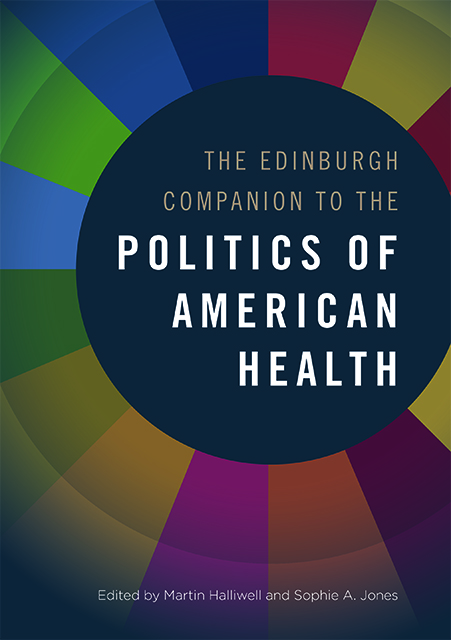Book contents
- Frontmatter
- List of Contents
- Notes on Contributors
- Introduction: The Political Landscapes of American Health, 1945–2020
- I Geography, Community and American Health
- II Critical Health Conditions: Debates and Histories
- III The Politics of Children's Health
- IV The Institutional Matrix of Health Care
- V The White House, Congress and Health Reform
- VI Justice, Ethics and American Health
- VII Public Health and Global Health
- General Bibliography
- Index
7 - Beyond the Cancer Wars
Published online by Cambridge University Press: 12 August 2023
- Frontmatter
- List of Contents
- Notes on Contributors
- Introduction: The Political Landscapes of American Health, 1945–2020
- I Geography, Community and American Health
- II Critical Health Conditions: Debates and Histories
- III The Politics of Children's Health
- IV The Institutional Matrix of Health Care
- V The White House, Congress and Health Reform
- VI Justice, Ethics and American Health
- VII Public Health and Global Health
- General Bibliography
- Index
Summary
Half of all Americans will undergo a cancer diagnosis, and half of those will die wondering why the billions of research dollars thrown at the word have not exterminated it from the English language. Most of us think of cancer as a medical diagnosis, a set of dividing cells and a disease for which the only rational response is to seek a cure. This is not wrong. But I want to think about it differently, as a foil, perhaps, and a way to consider how diseases are also productive: economically, politically and culturally. Diseases can certainly be fought and cured, but they also circulate within modes of production and consumption that do not fit – indeed are disavowed by – battle analogies and medical progress narratives. In other words, cancer is produced, treated and researched in ways that are profitable for some and costly for others, and in ways that do not uniformly reach towards more efficacious or more universally available, treatments. While this is true of many diseases, I will suggest that cancer is a particularly concentrated node to unpack these complex politics. How American culture has oriented around cancer as a disease has much to tell us about how normative ideologies structure disease experience, economics, politics and medicine.
Cancer can kill of course, and this fact not only makes it concrete, but seems to engage it fully in the language of biomedicine – the domain of which David Cantor discusses in this fourth section of this volume with respect to cancer research conducted at the National Institutes of Health. Yet at the same time, the lived reality exceeds any one description. Cancer takes some people within days of diagnosis, while other people stick around for years. While one sleeps it may clump into hard or soft tumours, or it may eddy into lymph fluid or lodge in the crook of one's liver or lung to initiate new colonies. One diagnosis may be followed by a nerve-wracking ‘watch and wait’ recommendation, while another may require an amputation or months or years tied to the sofa or worse.
Too wily to be tethered to a solid noun, the conundrums of cancer match its craftiness.
- Type
- Chapter
- Information
- The Edinburgh Companion to the Politics of American Health , pp. 120 - 132Publisher: Edinburgh University PressPrint publication year: 2022



